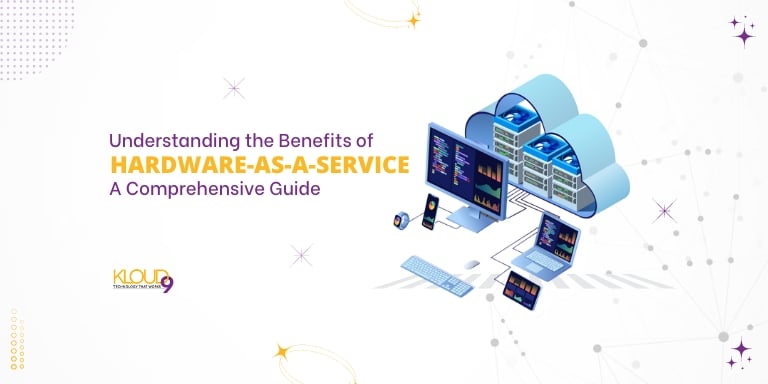In recent years, hardware-as-a-service (HaaS) has revolutionized how businesses manage their IT infrastructure. HaaS offers a flexible alternative to traditional hardware procurement and ownership models, allowing organizations to access the latest technology without the burden of large upfront investments. Below, we delve into the myriad benefits that HaaS brings, from cost savings to scalability and beyond.
The Benefits of Hardware-as-a-Service
1. Cost Savings
One of the most compelling advantages of HaaS is its ability to reduce capital expenditures and convert them into manageable operational expenses. Instead of purchasing expensive hardware outright, businesses can subscribe to HaaS solutions and pay a predictable monthly fee based on usage. This pay-as-you-go model eliminates the need for significant upfront investments, freeing up capital that can be redirected toward core business activities or strategic initiatives. Additionally, HaaS providers often bundle maintenance, support, and upgrades into their service offerings, lowering total ownership costs. By spreading hardware costs over time and leveraging economies of scale, HaaS enables organizations to achieve significant cost savings and better align their expenses with revenue streams.
Moreover, HaaS minimizes the financial risks associated with technology obsolescence. In traditional ownership models, businesses are responsible for disposing of outdated hardware and replacing it with newer versions. This cycle can be costly and disruptive, particularly for rapidly evolving technologies. With HaaS, providers are responsible for refreshing hardware regularly, ensuring that clients always have access to up-to-date equipment without incurring additional expenses. By staying ahead of the technology curve and mitigating the risk of obsolescence, HaaS empowers businesses to maintain competitiveness in dynamic markets while optimizing their IT budgets.
2. Scalability
Another key advantage of HaaS is its inherent scalability, allowing organizations to easily adapt their IT infrastructure to changing business needs. In today's fast-paced digital landscape, businesses must remain agile and responsive to market dynamics, seasonal fluctuations, and growth opportunities. Traditional hardware procurement models often need to help accommodate sudden spikes in demand or evolving requirements, leading to inefficiencies and resource constraints. HaaS addresses this challenge by offering flexible subscription plans tailored to suit varying workloads and usage patterns.
With HaaS, businesses can quickly scale their hardware resources up or down as needed, ensuring optimal performance and cost-effectiveness at all times. Whether expanding into new markets, launching innovative products, or accommodating seasonal peaks, organizations can rely on HaaS to provide the necessary infrastructure without delays or excess capacity. Furthermore, HaaS solutions are designed to be agile and adaptable, enabling seamless integration with existing IT environments and workflows. This scalability enhances operational efficiency and future-proofs businesses against uncertainty, enabling them to pursue growth opportunities confidently.
3. Simplified Management and Maintenance
One of the often-overlooked benefits of hardware-as-a-service is its simplified management and maintenance. Traditional hardware ownership requires businesses to allocate resources for installation, configuration, monitoring, and troubleshooting tasks. These responsibilities can be time-consuming and resource-intensive, diverting valuable manpower from core business activities. In contrast, HaaS providers assume the burden of managing and maintaining hardware infrastructure, allowing businesses to focus on strategic initiatives and value-added tasks.
HaaS providers typically offer comprehensive support services, including proactive monitoring, regular maintenance, and timely upgrades. This proactive approach helps prevent potential issues before they escalate into costly disruptions, ensuring maximum uptime and reliability. Moreover, HaaS agreements often include service level agreements (SLAs) that guarantee performance metrics such as response times and availability, providing businesses with peace of mind and accountability. Organizations can reduce operational overhead, mitigate risks, and improve overall IT efficiency by outsourcing hardware management to specialized providers.
4. Enhanced Security and Compliance
Security and compliance are paramount concerns for businesses operating in today's digital landscape, where cyber threats and regulatory requirements continue to evolve. HaaS offers security benefits by incorporating robust measures to safeguard hardware assets and sensitive data. HaaS providers implement industry best practices for physical security, such as data encryption, access controls, and surveillance, to protect against unauthorized access and malicious attacks.
Moreover, HaaS solutions often include built-in security features and protocols to mitigate risks and ensure compliance with regulatory standards. Providers regularly update firmware and security patches to address vulnerabilities and maintain a secure environment. Also, HaaS agreements may include data protection, disaster recovery, and business continuity provisions, providing businesses with comprehensive risk mitigation strategies.
5. Access to the Latest Technology
Staying competitive in today's fast-paced business landscape requires access to cutting-edge technology. However, purchasing and maintaining the latest hardware can be inexpensive for many organizations. Hardware-as-a-Service offers a solution by providing access to state-of-the-art equipment without incurring upfront costs. HaaS providers regularly refresh their hardware offerings to incorporate technological advancements, ensuring subscribers can always access the latest innovations.
This access to the latest technology enables businesses to stay ahead of the curve, drive innovation, and remain competitive in their respective industries. Whether leveraging powerful processing capabilities, embracing emerging trends like artificial intelligence and machine learning, or adopting new hardware architectures for enhanced performance, HaaS allows organizations to capitalize on technological advancements without the burden of ownership.
6. Environmental Sustainability
In addition to financial and operational benefits, hardware-as-a-service contributes to environmental sustainability by promoting resource efficiency and reducing electronic waste. Traditional hardware ownership models often accumulate outdated equipment that must be utilized or disposed of properly, leading to environmental pollution and resource depletion. HaaS addresses this issue by promoting a circular economy approach to hardware provisioning.
HaaS providers follow sustainable practices by refurbishing, repurposing, or recycling hardware assets at the end of their lifecycle. By extending the useful life of hardware through responsible reuse and recycling initiatives, HaaS minimizes the environmental impact of IT infrastructure. Furthermore, by consolidating hardware resources and optimizing utilization through shared infrastructure models, HaaS helps reduce energy consumption, carbon emissions, and electronic waste generation.
Conclusion
In conclusion, hardware-as-a-service (HaaS) offers comprehensive benefits, including access to the latest technology, environmental sustainability, and cost-effective scalability. By embracing HaaS solutions, businesses can optimize their IT infrastructure, enhance operational efficiency, and drive innovation while contributing to a more sustainable future. As the demand for flexible and eco-friendly IT solutions grows, HaaS stands out as a compelling choice for organizations seeking to maximize value while minimizing environmental impact.





You must be logged in to post a comment.